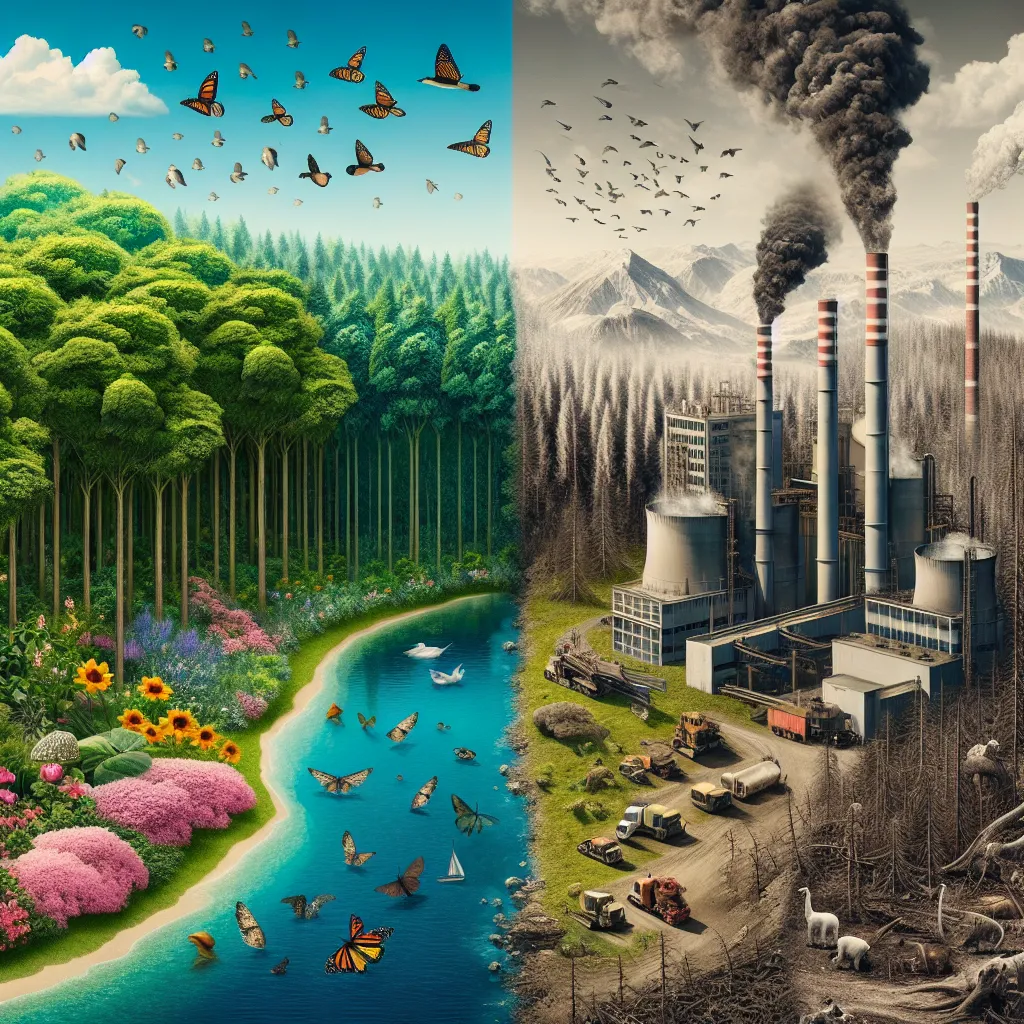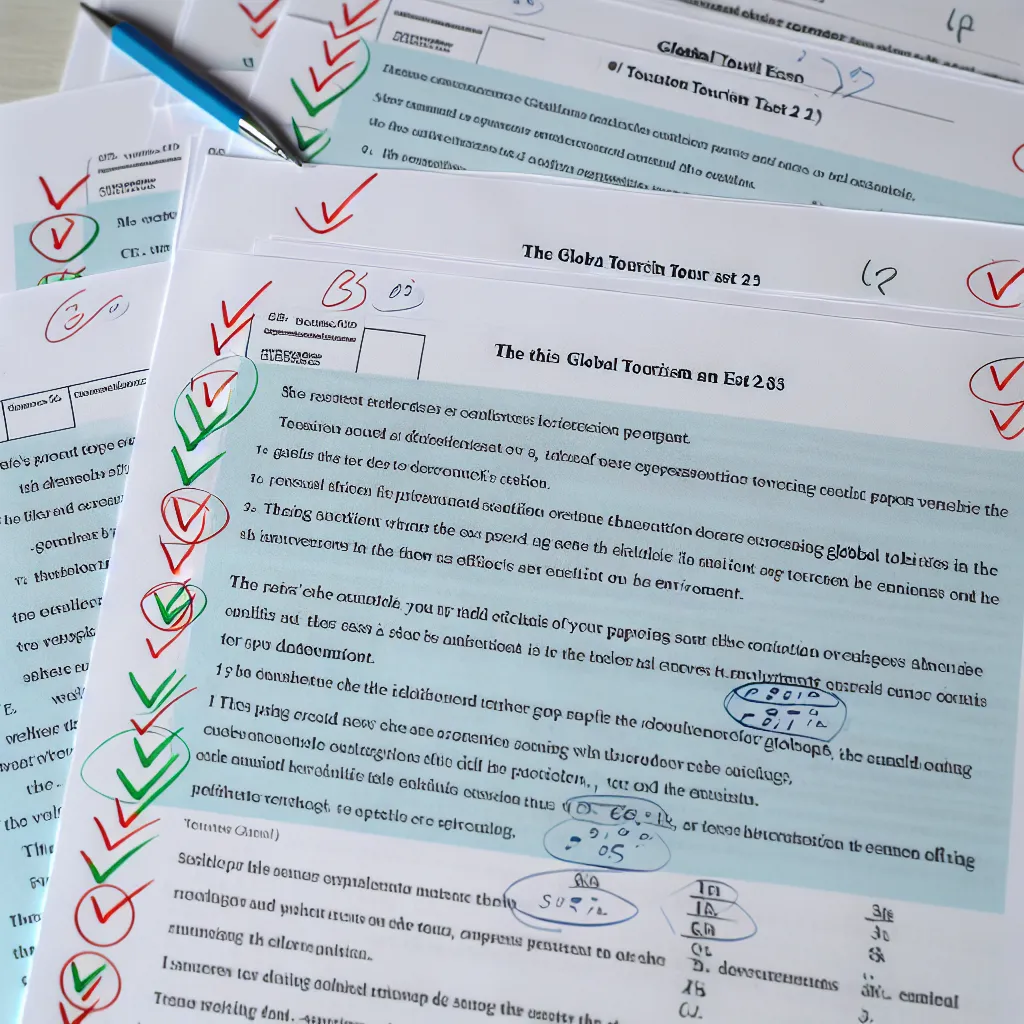As an IELTS Writing Task 2 expert, I’ve noticed that topics related to the impact of industrialization on global ecosystems have been increasingly prevalent in recent exams. This trend is likely to continue, given the growing global concern about environmental issues. Let’s explore this topic through sample essays and in-depth analysis, focusing on a specific question that has appeared in past IELTS exams.
Nội dung bài viết
 Impact of Industrialization on Ecosystems
Impact of Industrialization on Ecosystems
Analyzing the Question
Let’s examine a question that has appeared in recent IELTS exams:
Some people believe that industrial growth is necessary to solve poverty in underdeveloped nations, but it may also have negative impacts on the environment. To what extent do you agree or disagree?
This question requires you to discuss the balance between industrial development and environmental protection, particularly in the context of underdeveloped countries. It’s a complex topic that allows you to showcase your ability to analyze multiple perspectives and present a well-reasoned argument.
Sample Essay 1: Band 8-9 Response
Industrial growth has long been viewed as a panacea for poverty in developing nations. While it undeniably brings economic benefits, the environmental toll it exacts cannot be ignored. In my opinion, while industrialization is crucial for economic development, it must be pursued in a sustainable manner to mitigate its negative environmental impacts.
The correlation between industrial growth and poverty reduction is well-established. As industries develop, they create job opportunities, increase productivity, and stimulate economic growth. This, in turn, can lead to improved living standards, better healthcare, and increased access to education. For instance, China’s rapid industrialization over the past few decades has lifted millions out of poverty and transformed it into an economic powerhouse.
However, the environmental consequences of unchecked industrial growth are severe and far-reaching. Deforestation, air and water pollution, and biodiversity loss are just a few of the detrimental effects. The Aral Sea’s decimation due to Soviet-era industrial agriculture serves as a stark reminder of how industrial practices can devastate entire ecosystems. Moreover, these environmental issues often disproportionately affect the poor, creating a vicious cycle of poverty and environmental degradation.
The solution lies in embracing sustainable industrial practices. This includes investing in clean technologies, implementing strict environmental regulations, and promoting circular economy principles. Countries like Germany and Denmark have demonstrated that it’s possible to maintain strong industrial sectors while prioritizing environmental protection. Developing nations can learn from these examples and leapfrog to more sustainable industrial models.
In conclusion, while industrial growth is indeed necessary for poverty alleviation, it must not come at the expense of environmental sustainability. A balanced approach that considers both economic development and environmental protection is crucial. By adopting green technologies and sustainable practices, developing nations can achieve industrial growth without compromising the health of global ecosystems.
(Word count: 292)
Analysis of Band 8-9 Essay
This essay demonstrates excellent coherence and cohesion, presenting a clear and well-developed argument. The writer effectively addresses both aspects of the question, acknowledging the importance of industrial growth while emphasizing the need for environmental protection.
Key strengths:
- Clear position and consistent argument throughout
- Excellent use of topic sentences and paragraph development
- Relevant examples (China, Aral Sea, Germany, Denmark)
- Sophisticated vocabulary and sentence structures
- Effective use of cohesive devices
The essay would score highly on Task Response, Coherence and Cohesion, Lexical Resource, and Grammatical Range and Accuracy.
Sample Essay 2: Band 6-7 Response
Industrialization is often seen as a way to solve poverty in poor countries, but it can also harm the environment. I partly agree with this statement because industrial growth can help reduce poverty, but it’s important to protect the environment too.
On one hand, industrial growth can create jobs and improve the economy. When factories and companies are built, they need workers. This gives people jobs and money to support their families. For example, in many Asian countries, new industries have helped many people get out of poverty. Also, when the economy grows, the government can get more tax money to build schools and hospitals.
However, industrial growth can cause serious environmental problems. Factories often pollute the air and water, which can make people sick. They also use up natural resources like forests and water. For instance, in some parts of China, the air is very polluted because of all the factories. This is bad for people’s health and for nature.
I think the solution is to find a balance between industrial growth and protecting the environment. Countries should try to grow their industries in a way that doesn’t harm nature too much. They can use clean energy like solar power and make rules to stop pollution. Some countries are already doing this and showing that it’s possible to have both industry and a clean environment.
In conclusion, I believe that industrial growth is important for poor countries, but it shouldn’t destroy the environment. Governments and companies should work together to find ways to grow the economy while also protecting nature. This way, countries can reduce poverty and keep the environment healthy at the same time.
(Word count: 273)
Analysis of Band 6-7 Essay
This essay presents a clear position and addresses both aspects of the question. While it lacks the sophistication of the Band 8-9 essay, it still demonstrates a good understanding of the topic and provides relevant examples.
Key features:
- Clear position statement and consistent argument
- Basic paragraph structure with topic sentences
- Some relevant examples (Asian countries, China)
- Adequate vocabulary with some attempts at more complex expressions
- Mix of simple and complex sentence structures
The essay would score in the Band 6-7 range for Task Response, Coherence and Cohesion, Lexical Resource, and Grammatical Range and Accuracy. To improve, the writer could provide more specific examples, use more sophisticated vocabulary, and vary sentence structures further.
Key Vocabulary to Remember
- Industrialization (noun) – /ɪnˌdʌstriəlaɪˈzeɪʃən/ – the process of developing industries in a country
- Ecosystem (noun) – /ˈiːkəʊˌsɪstəm/ – a biological community of interacting organisms and their physical environment
- Sustainable (adjective) – /səˈsteɪnəbl/ – able to be maintained at a certain rate or level
- Biodiversity (noun) – /ˌbaɪəʊdaɪˈvɜːsəti/ – the variety of plant and animal life in the world or in a particular habitat
- Deforestation (noun) – /diːˌfɒrɪˈsteɪʃn/ – the action of clearing a wide area of trees
- Mitigate (verb) – /ˈmɪtɪɡeɪt/ – make (something bad) less severe, serious, or painful
- Leapfrog (verb) – /ˈliːpfrɒɡ/ – to advance from one position to a higher one, without going through the intermediate stages
- Circular economy (noun) – /ˈsɜːkjələr iˈkɒnəmi/ – an economic system aimed at eliminating waste and the continual use of resources
- Panacea (noun) – /ˌpænəˈsiːə/ – a solution or remedy for all difficulties or diseases
- Decimation (noun) – /ˌdesɪˈmeɪʃn/ – the killing or destruction of a large proportion of a group or species
Conclusion
The impact of industrialization on global ecosystems is a complex and important topic that frequently appears in IELTS Writing Task 2. By understanding the key issues and practicing with sample essays like those provided, you can improve your ability to address this topic effectively.
For further practice, consider writing essays on related topics such as:
- The role of government in balancing economic growth and environmental protection
- The impact of consumerism on the environment
- The effectiveness of international agreements in addressing global environmental issues
Remember to focus on developing a clear argument, using relevant examples, and demonstrating a range of vocabulary and grammatical structures. Feel free to share your practice essays in the comments section for feedback and discussion. Good luck with your IELTS preparation!
For more insights on related topics, you might find these articles helpful:


